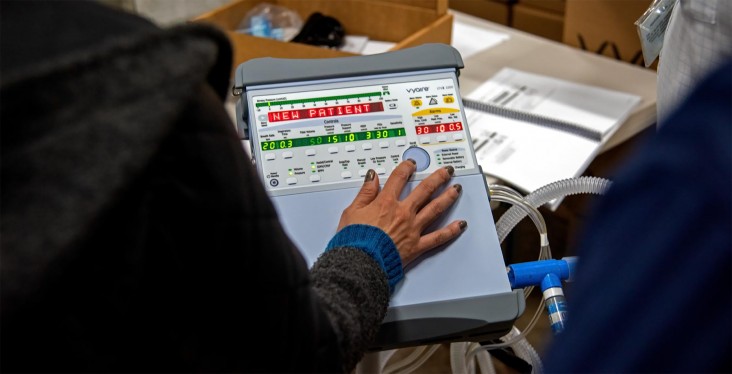Speeches Shim

A well-nourished and healthy population is a precondition for sustainable development.
More than six million people In Guatemala, approximately 35 percent of the country’s population, lack access to basic health and nutrition services. USAID health activities in Guatemala improve the accessibility, quality, transparency and accountability of health services to better serve these communities. USAID programs improve human resources for health by supporting the training and development of health providers and strengthening the health system to ensure that community needs and cultural patterns are respected.
Strengthening Health and Nutrition Practices
Healthy behaviors, practiced and supported by all members of the household are critical for improving nutrition and preventing illness. USAID works with families and communities on health and nutrition issues as well as the adoption of healthy behaviors such as early and exclusive breastfeeding, hand washing, improved child feeding practices, adequate birth spacing, gender-based violence (GBV) prevention, safe sexual practices, responsible fatherhood, and timely use of health services throughout the various life cycles.
Expanding and Auditing Health Services
USAID supports community leaders and municipal governments to recognize health emergencies and to develop emergency response plans. USAID works with communities to develop strategies to ensure potable water is available to households and engages communities to improve citizen advocacy for health services, with a focus on the needs of women, children, and youth. USAID supported health interventions are culturally appropriate for the diverse indigenous populations, ensuring that services and outreach are tailored to their specific needs, beliefs, and cultural practices.
Additionally, USAID works with civil society groups to conduct social auditing of availability and quality of health services, medicines, and supplies. To ensure clean water is available at all health facilities, USAID assists local governments to improve water and sanitation planning and monitor water quality.
Context & Challenges
Guatemala has the highest rate of stunting in the Western Hemisphere and the fifth highest rate in the world, with nearly half of all children under five stunted and chronically malnourished. Lack of access to health services has life and death consequences; the maternal mortality ratio is 108 deaths per 100,000 live births. Health outcomes drastically decline when disaggregated across Guatemala’s population, where indigenous people, people with lower educational levels, and people living in poverty are disproportionately affected. Among indigenous children under the age of five, stunting rates rise to 70 percent, while indigenous women experience a 30 percent higher risk (139 deaths per 100,000 live births) of maternal mortality. High teenage pregnancy rates (one in five girls nationally have given birth by age 19, one in four in the Western Highlands) further exacerbate Guatemala’s youth bulge and complicate educational and economic advancement for young parents. These health challenges limit Guatemala’s growth.
Programs
- Health and Education Policy Project Plus (HEP+)
- Centers for Disease Control and Prevention Inter Agency Agreement II
- Water Quality Improvement in the Mam territory and Institutional Strengthening of the Mancomunidad de la Cuenca del Rio Naranjo (Mancuerna)
- Improved Health and Nutrition Activity
- Global Health Supply Chain for Procurement and Supply Management


Comment
Make a general inquiry or suggest an improvement.